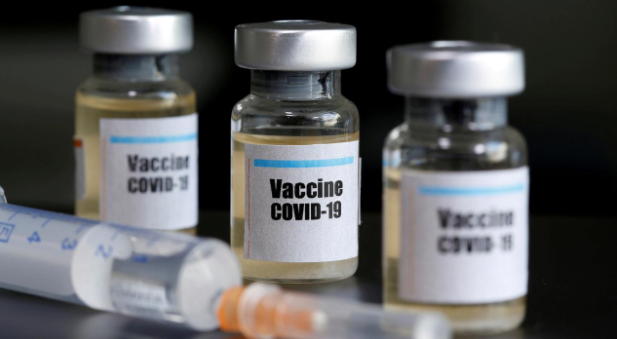COVID-19 Update May 24, 2020
- icshealthsciencejournal

- May 24, 2020
- 4 min read
Updated: May 27, 2020
This article contains:
Changes Due to COVID-19
Clinical Trials Testing the Results of Chinese COVID-19 Vaccine
Changes Due to COVID-19
Written By: Pimtawan Jatupornpakdee
Recently, many countries have canceled their lockdown process due to the gradual improvement in the COVID-19 situation. Stores and restaurants begin to reopen their businesses again. Thailand is included in one of those countries as well. Last Sunday, May 18, Thailand officially reopened malls. This reopening has excited a great number of people, causing massive crowds in many well-known malls. In addition to the reopening of malls, on May 13, there were zero cases of infected patients in Thailand. From these two amazing pieces of news, some people thought it wouldn’t be long until we are back to our normal life in Thailand.
Students around the world have to take online classes due to COVID-19. Surely, not everyone appreciates that solution. Many families in Thailand cannot afford the electronic devices needed for online learning. Due to that reason, people came out to protest about the situation. Since they observed that the situation in Thailand is getting better, they suggest schools to reopen before the scheduled date, which is the first of July. Professor Yong Poovorawan, a medical professor in the Faculty of Medicine of Chulalongkorn University, addresses this situation in his personal Facebook pages. He said that although the situation might be better in Thailand, other parts of the world are still suffering from COVID-19, so we shouldn’t be careless. People should learn to adapt to this new situation and live with a new lifestyle.
Diseases that are infected through respiration, such as the COVID-19 and RSV, are rarely found during the hot summer, but are commonly spread in the rainy season. This is a dangerous sign for people in Thailand because the rainy season is coming up for them. Professor Yong Poovorawan warned people about these facts and suggested people to act carefully in their daily life and to strictly practice social distancing. One alternative he suggested is for students to be capable of learning both at home and at school. The reason he focused his alternative to students is because children are good carriers of diseases. If the schools are to reopen, it would be a perfect place to spread the second phase of the COVID-19 in Thailand. He said that learning shouldn’t only be about schools and teachers, but it should involve both schools and households working cooperatively with each other. In the past, students were always studying in crowded classrooms until late at night in Thailand. He disagrees with that teaching style since it is creating more gaps between the rich and the poor. Many families in Thailand are unable to afford special classes for their children. He said that we should turn this crisis into new chances. Instead of lessons in the classroom, students should be open and be able to learn more about their practical skills that can be useful in real life. The new teaching style might lead to a more successful future for some students, avoiding the stress path.
Because of COVID-19, people have to adapt to a new and unfamiliar lifestyle. Changes are always strange in the beginning, but it might lead to a more successful future. Let’s change this worldwide crisis into new chances for us to step out of our comfort zone.
Clinical Trials Testing the Results of Chinese COVID-19 Vaccine
Written By: Nayada Deevisetpunt
Recently, China has been developing an adenovirus type-5 (Ad5) vectored vaccine in hopes of its ability to help ease problems during this epidemic. The type of vaccine China is currently testing is an inactivated vaccine. Using an inactive germ that causes the disease, inactivated vaccines provide an immune response and are also used to prevent flu-like hepatitis A and rabies. However, there are some disadvantages concerning this type of vaccine. Inactivated vaccines may not be capable of providing protection as strong as those by live vaccines and multiple doses are needed to provide long-term immunity.
This Chinese vaccine, Ad5-nCoV, has finished its first phase of clinical trials in humans. During this phase-1, researchers injected the vaccine into 108 volunteers. The volunteers were divided into three different groups, each group taking a different dose of the vaccine. The first, second, and third groups received low, middle, and high doses, respectively. After 28 days, the researchers found no serious effects from the vaccine; humans are able to tolerate this vaccine. The Lancet, a medical journal in the United Kingdom, concluded that the vaccine, however, still “warrants further investigation.” Despite its positive outcomes, experts mentioned that “a working vaccine remains a long way off” and that there is still plenty of room to improve it.
A study also found that those with preexisting immunity to the Ad5 exhibited a weaker immune response to the vaccine. Because of this, Tao mentioned that “immune response to the vaccine is weaker in people who often catch colds and in the elderly.” Also, about 87 percent of the 108 volunteers reported an adverse reaction after the injection of the vaccine. Tao, however, argued that there was a lack of a placebo control group during the first phase of the clinical trial, making it difficult to conclude whether these adverse reactions are actually the effects from the vaccine or not.
This first inactivated vaccine of China has now entered the second phase, with 508 volunteers led by a biology professor from the Academy of Military Medical Sciences and one of the members of the Chinese Academy of Engineering. The double-blind and placebo-controlled trials are now taking place in Jiaozuo and will take at least one month. It is likely that the third phase of the trial will be carried out in regions like Wuhan, which is one of the “hit-hard regions” in China.
If lucky, there is a possibility that a vaccine could be ready by September for emergency use. Nevertheless, it is still estimated that the vaccine will need another six more months for trials and development, and should probably be available some time next year.









Comments